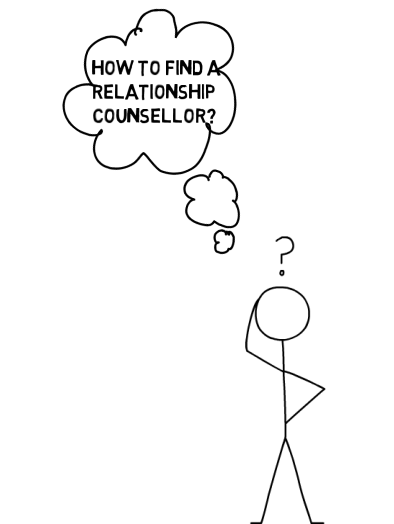Couples' Distance Pursuer Dance
 When we feel under threat or vulnerable the natural response is to reach out for connection ( often through protest ) or withdraw or numb out to self-protect. This is sometimes called the fight, flight, freeze response. When there is a good connection, partners feel nourished and close. Often couples get stuck in a negative cycle making it hard to reconnect due to a history of hurt and entrenched positions.
When we feel under threat or vulnerable the natural response is to reach out for connection ( often through protest ) or withdraw or numb out to self-protect. This is sometimes called the fight, flight, freeze response. When there is a good connection, partners feel nourished and close. Often couples get stuck in a negative cycle making it hard to reconnect due to a history of hurt and entrenched positions.
In arguments the reaching out for connection when mixed with hurt can be experienced as by a partner as criticism/ attack. This leads to withdrawal for self protection.
When our reaching out for connection fails, we protest, criticise, demand, blame which causes more withdrawal. Also withdrawing triggers a partner to protest about the lack of connection.
Couples get stuck arguing over 'content' issues such as 'cleaning disputes , the dishwasher not being emptied ,or one partner staying out late, or working long hours", when what's most important is what it means in terms of the couple seeking closeness or distance and what it means to each partner in terms of 'feeling connected' . In a relationship at different times there are variations on the basic default distance/ pursuer theme.
There's attack/attack or mutual withdrawal or a change of positions as the pursuer gives up momentarily.
Withdrawers say...
"You never come near me, it's always up to me to initiate sex"
"I can never get it right"
"I don't know what I feel. I don't feeling anything. I'm lost"
"I just want us to have a nice time and not argue"
" You are always picking on something"
"Can't you just relax and put your to do list down?"
"She gives me that look and I'm paralysed"
" I can never get it right for her, there is always something"
"I can't clean to her standards"
"She gets upset over the smallest things"
Pursuers say...
" It's up to me to do everything, he never takes the initiative"
" He's spends all his time at work or at the computer"
"When I ask him what's wrong, he snaps at me"
" I can't stand it when he just walks away"
"I feel I am way down on his list"
"Any hope of romance or passion is futile, he's just not interested"
"He never listens to me. He just gives advice"
" I've got so used to doing things on my own"
Relationship counselling gives couples the support to slow things down, to recognise and descalate the distance/pursuer dance. It helps through naming and normalising how couples get stuck. Through the process you learn how to replace the negative pattern with a postive one leading to you feeling closer and able to talk things through.
Finding A Relationship Counsellor
Here's a practical guide:
Use the Internet
You may be fortunate enough to have a recommendation from a friend or family member. Yet nowadays many couples find a counsellor via the internet. It's a process of searching for relationship counsellors in your area, finding out what they say about themselves, looking at their training,availability, fees and reviews if available.
The best guide is to trust your gut-feel. You want a relationship counsellor you feel you can trust and talk to. You want to feel safe but not too safe! You need a counsellor who challenges you and shakes up the status quo. You want a counsellor who can handle strong emotion. Someone who is calm ,solid and impartial. Someone who is there for you both and doesn't take sides. You want a relationship counsellor who will supports you to work on your relationship.
Make Sense of Counsellors' Qualifications and Training
Levels of Training
Many therapists trained to work with clients one to one see couples. They may be well qualified and accredited with BACP or UKCP based on their skills of working one ot one. It's my experience that working with couples requires a different skillset/ approach to working one to one. I recommend looking at a therapist's training to check that they have been specifically trained to work with couples.
Variations in Approach
How to make sense of different therapeutic approaches? Firstly remember that qualities of the relationship counsellor tends to be more important than nuances of their training. Relationship counsellors. Research shows that relatonship problems are usually co-created so most relationshhip counsellors use a 'systemic model' which means they look at your relationship dynamic as a system where one of you impact the other. This is different from an individual approach were the focus is on one person or the other.
Couples Counselling or Individual Counselling?
If you are having issues in your relationship you may be wondering if it's best for one of you to deal with their issues in individual counselling. I would recommend first going together for counselling. In relationships, although often it doesn't seem like it, both partners tend to co-create the relationship issues so it makes sense for you to look at what is going on together.
You can continue with individual counselling while attending relationship counselling. If you are attending relationship counselling , you can discuss if individual counselling is a good idea. Usually this would be with a separate counsellor. You need to be mindful that if both you and your partner have individual counselling it can become a way of avoiding what is going on between you .
What if Your Partner is Unwilling to Attend?
It's common for one partner to be keen to try relationship counsellor and the other not sure. Starting together is best.However you can attend by yourself initially if your partner is reluctant with the option of your partner attending later. Your partner my be willing to come later on seeing the positive changes in you and that the counsellor isn't taking sides.
Fees
In general relationship counsellors try to respond to couple's financial constraints by agreeing managable feels or altering the frequency of sessions. If sessions are unaffordable to you or your financial situation changes do discuss with your relationship counsellor to see what agreement can be reached.
Skype Sessions
Some relationship counsellors offer skype sessions. The benefits and disadvantages of using skype need to be considered before deciding to have skype sessions. Although skype offers the convenience of being able to work with a therapist without having to travel, it's not going to have the benefits of meeting face to face. Meeting in the therapist room , away from your home enviroment creates a better boundaried space to work on your relationship. Using skype can feel less connected and less personable that face to face sessions.If you can try to find a local relationship counsellor. Consider combining regular face to face sessions with occasional Skype sessions when you are unable to attend in person can work well.














